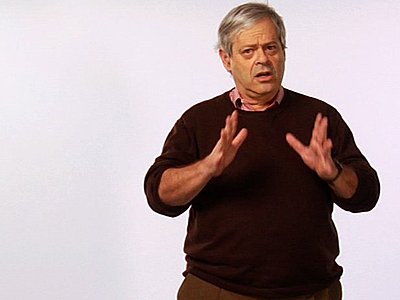Daniel Okrent appeared on The Bat Segundo Show #337. Mr. Okrent is most recently the author of Last Call: The Rise and Fall of Prohibition.
Listen: Play in new window | Download
Condition of Mr. Segundo: Bombarded by too much bathtub gin and too many over-the-top movie trailers.
Author: Daniel Okrent
Subjects Discussed: [List forthcoming]
EXCERPT FROM SHOW:
Correspondent: I wanted to ask you about Walgreen’s. You point out that it went from twenty locations in 1920 to 525 during the 1920s, pointing out that it wasn’t just milkshakes that were responsible for this expansion. Yet all you present in the book to support this possibility is an interview with Charles Walgreen, Jr., who said in an interview with John Bacon that his father didn’t want the fire department in his stores because he was losing cases of liquor. I’m wondering if you made any efforts to corroborate this claim from another source. Has Walgreen’s managed to hush this up?
Okrent: Well, I think — be careful. I don’t make a claim. I say —
Correspondent: Suggestion.
Okrent: I make a suggestion. And that’s all I can do — is make a suggestion. But we do know this to be true. We know from Charles Walgreen, Sr.’s testimony to his son that they had liquor in the stores and he was afraid of losing it to the thieves. Right? Number two. We know that he had twenty stores at the beginning of Prohibition and 525 at the end. And if you want to believe it’s milkshakes, believe that it’s milkshakes. But the fact — the medicinal liquor business was an enormous business. Not just for the Walgreen’s drugstores, but for pharmacists across the country. You know, I have a bottle at home on my shelf. It’s kind of an inspiration. It’s an empty bottle. It says JIM BEAN. BOTTLED AND BOND. FOR MEDICINAL PURPOSES ONLY. This was a pure racket. And druggists, unless they had some kind of scruple that few apparently had, made a fortune because of it.
Correspondent: But beyond the Bacon interview, did you make any efforts to….?
Okrent: Yeah. I made efforts. There’s nobody alive in the Walgreen family today that I tried to make contact with, that had any thoughts about it either way. Or not. I don’t think that there’s been a conscious effort to cover it up. I think that it’s just forgotten.
Correspondent: Al Capone cultivated an image of benevolence. And you also point to Seattle bootlegger Roy Olmstead, who was quite ethical by comparison. He didn’t dilute his liquor. He didn’t resort to mob tactics. I’m wondering what factors made Olmstead a more ethical bootlegger. Was it Olmstead the man? Or was it the makeup of Seattle in comparison to the competitive violent world of Chicago?
Okrent: Yeah, I think that the latter has a lot to do with it. By all evidence, Olmstead was a decent man. You know, he was the youngest police lieutenant in the history of the Seattle Department. He was looked on as a golden boy of sorts. But because of his honesty, because he didn’t dilute, because he didn’t raise prices, he had very happy customers in Seattle. And he also worked very well with anybody else who was in the business. He built a big coalition. Really kind of a market control coalition. He controlled all of the booze that was coming into the Pacific Northwest. Capone was in a very different circumstance. I think that he was a different kind of man to begin with. And secondarily, he was in an extremely competitive cutthroat murderous environment, in which other people were trying to get a piece of the action. Olmstead didn’t try to accrue power to himself. He liked to run a good business. Capone wanted to be in charge.
The thing to me about Capone that is most surprising, relative to the popular image that we have of Capone, is that when he took over Chicago, he was twenty-five years old. He was a kid. And he was gone before he was thirty.
Correspondent: And he was played by all these older actors too.
Okrent: Yeah. I ask people, “How old do you think Al Capone was when he ran Chicago?” They say, forty-eight, thirty-seven, fifty. But he was a baby.
Correspondent: But in Seattle, was there violence involved?
Okrent: There wasn’t much violence in Seattle. There was a nicely cooperative operation between those who enforced the law and those who were breaking the law. Including the fact that the justice of the peace who presided over hearings and trials, they got a piece of the fine. So they liked the idea of people being arrested, paying a fine, and then went about it again — so that they could be arrested again. So they could pay the fine again.
Correspondent: So Olmstead set the precedent of a peaceful, money-oriented coalition here.
Okrent: Yeah. I think that there were others like that were others like that also in the country. But Seattle was remarkably free of the violent crime that hit the Eastern and Midwestern cities.
Correspondent: What other cities were nonviolent in terms of bootlegging?
Okrent: Nonviolent. San Francisco. I think that San Francisco and, to some degree, New Orleans are the ones that come immediately to mind. San Francisco never really acknowledged that Prohibition existed. Even the judges in San Francisco. They threw cases out. The DA of San Francisco, which is both a city and a county — he was an official in the organization against the Prohibition Amendment. He campaigned against it. So violence wasn’t necessary. Because there was nobody trying to corner a market. It was an open market for everybody.
The Bat Segundo Show #337: Daniel Okrent (Download MP3)
